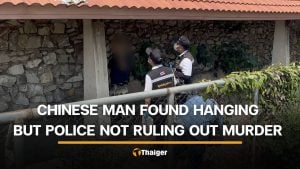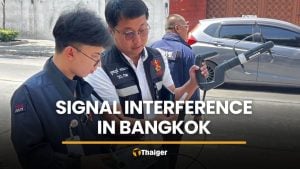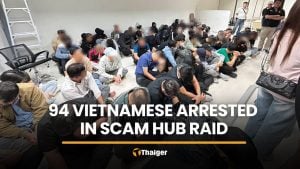Thailand coalition agrees on constitutional drafting assembly

The coalition parties in Thailand have reached a consensus on the need to establish a constitutional drafting assembly (CDA) to oversee the proposed amendments to the constitution. The Bhumjaithai Party emphasised that any changes put forth by the CDA must genuinely serve the interests of the people.
Chaichanok Chidchob, Secretary-General of the Bhumjaithai Party, highlighted that discussions on charter amendments have been initiated among coalition partners. There is no concern about the completion of this process within the current term of office.
Chaichanok stressed the necessity for a charter referendum to determine the need for changes and to identify specific areas requiring amendment. He assured that there would be no resistance if the problematic areas were pinpointed.
“A referendum will provide reassurance that the government can proceed with the charter rewrite process.”
Chaichanok mentioned that the required majority for a referendum to be approved must be decided by the joint House-Senate committee.
The coalition parties have also agreed not to revise Section 112 of the Criminal Code, known as the lese majeste law. Chaichanok added that any amnesty proposal for political offenders should not extend to those charged under this law.
Varawut Silpa-archa, leader of the Chart Thai Pattana Party, expressed the government’s commitment to pushing for the establishment of a CDA, although the charter may not be completed before the 2027 elections. He noted that the CDA would play a crucial role in drafting a new charter that represents all political perspectives and remains independent and inclusive.
Varawut referenced the 1997 constitution, often referred to as the People’s Charter, which was completed years after the establishment of a CDA during Banharn Silpa-archa’s government. He agreed that the charter rewrite process should not be rushed to avoid creating loopholes or flaws in the constitution.
Prime Minister Paetongtarn Shinawatra expressed her willingness to meet with People’s Party list MP Parit Wacharasindhu to discuss the charter rewrite process. Last week, Parit expressed his desire to discuss with the prime minister ways to expedite the process, aiming to have a new constitution in place before the next election, reported Bangkok Post.
What Other Media Are Saying
- International IDEA highlights the contentious path toward amending Thailand’s 2017 Constitution, emphasising the struggle between progressive and conservative forces, with significant public engagement and potential delays in reform efforts. (read more)
- PBS highlights Thailand’s Constitutional Court dissolving the Move Forward Party, citing royal defamation law violations, amidst ongoing tensions between progressive movements and conservative forces aiming to maintain power. (read more)
Frequently Asked Questions
Here are some common questions asked about this news.
Why is a constitutional drafting assembly essential for Thailand’s future?
It ensures the charter reflects diverse political views and genuinely serves the people’s interests, fostering democratic legitimacy.
How might a referendum impact the process of constitutional amendments in Thailand?
A referendum can provide public validation for the changes, ensuring alignment with citizens’ priorities and reducing governmental resistance.
What if the constitutional drafting assembly fails to meet the 2027 deadline?
It could delay reforms, affecting political stability and potentially influencing the outcomes of future elections.
Why is there resistance to amending Section 112 of the Criminal Code?
The lese majeste law is sensitive, touching on monarchy-related issues, which are deeply rooted in cultural and political considerations.
How could historical precedents like the 1997 constitution guide current reforms?
Learning from past processes can help avoid mistakes, ensuring a comprehensive and inclusive constitution that stands the test of time.
Latest Thailand News
Follow The Thaiger on Google News:


























